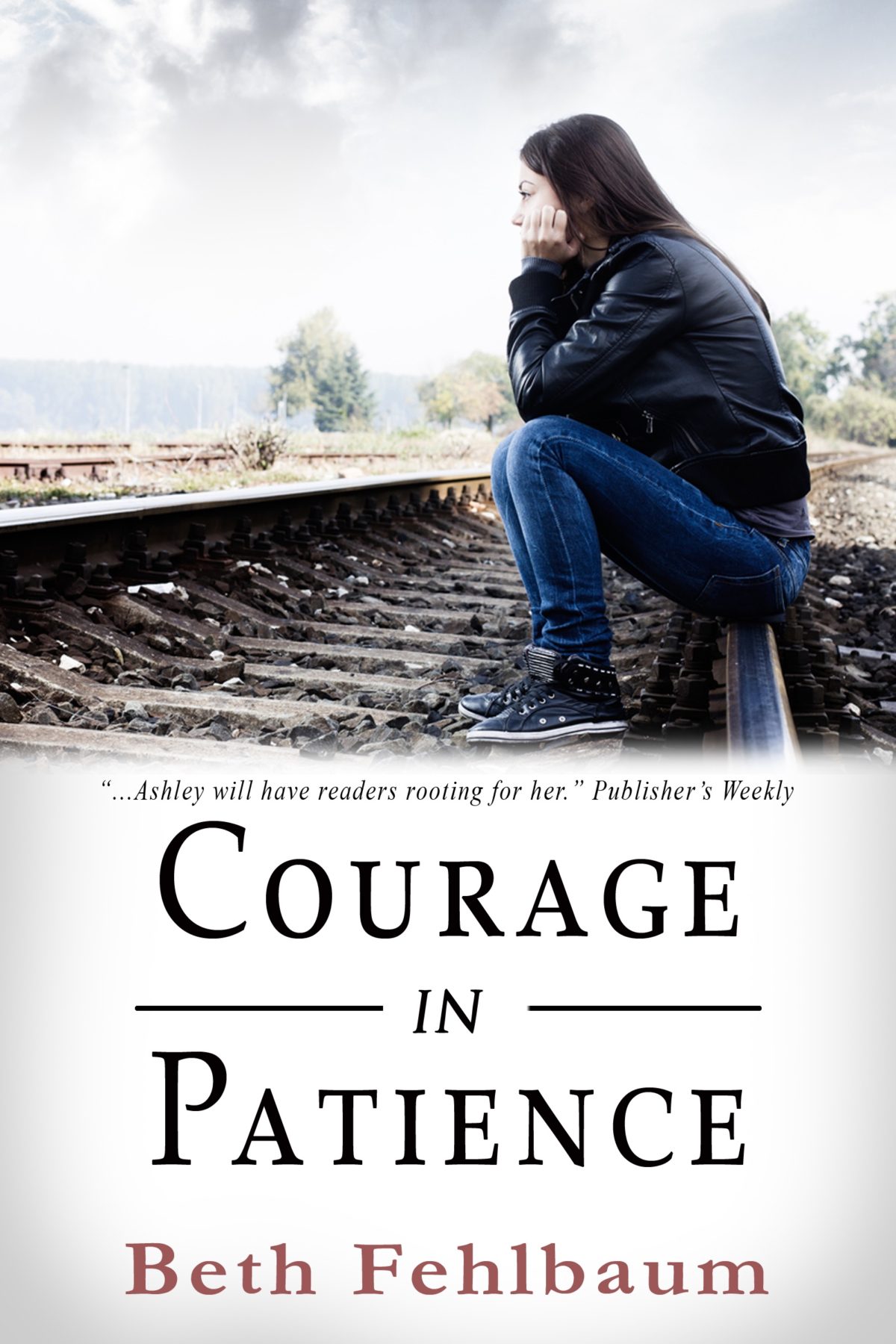Click here to get your free ebook of COURAGE IN PATIENCE from Amazon.
 Read this interview excerpt for Beth’s insights into the creation of COURAGE IN PATIENCE and the process of recovery from Childhood Sexual Abuse:
Read this interview excerpt for Beth’s insights into the creation of COURAGE IN PATIENCE and the process of recovery from Childhood Sexual Abuse:
Question: You went through six years of intensive therapy to help you recover from being abused as a child. A lot of people, young adults and adults alike, find starting therapy a very frightening and uncomfortable experience. What advice would you give someone who is thinking about starting therapy for the first time?
Answer: The six years of therapy I went through were with a clinical psychologist whom I clicked with at the same time that circumstances in my life came together in a way that I had a strong support system in my husband and then-teenage daughters.
I had been in and out of therapy many times since my early twenties, but I never had the support system in place to withstand what I had to do in order to get well: face the truth about my stepfather sexually abusing me and my mother not protecting me. This involved breaking with my family of origin completely—basically, when I insisted on no more playing “Let’s Pretend,” it was made clear to me in a variety of ways that I had done something so wrong (in their eyes) that they wanted nothing to do with me anymore. It was very, very difficult because my mother was an amazing grandmother to my kids, and they lost her in the process.
Recovery from childhood sexual abuse is very, very difficult. My therapist compared it to a barefoot walk from Texas to Alaska and back, with all the weather along the way. I would agree with that assessment; in fact, I used that comparison in my Patience books, Courage in Patience and Hope in Patience. I strongly believe that people who have been sexually abused and are seeking to heal from it and reclaim their lives need the guidance of an experienced mental health professional. If the first therapist (or second, or third) does not seem to be helping, keep going until you find one you click with. Don’t give up, because you are worth the fight to reclaim your life.
Outside of the therapist’s office, you need a strong support system of people who are aware of what you are going through, who will be safe for you to be vulnerable, and will give you emotional shelter when you need it.
And—be prepared to be completely honest with yourself and others in your life. It’s the only way to heal and find out how strong you are.

